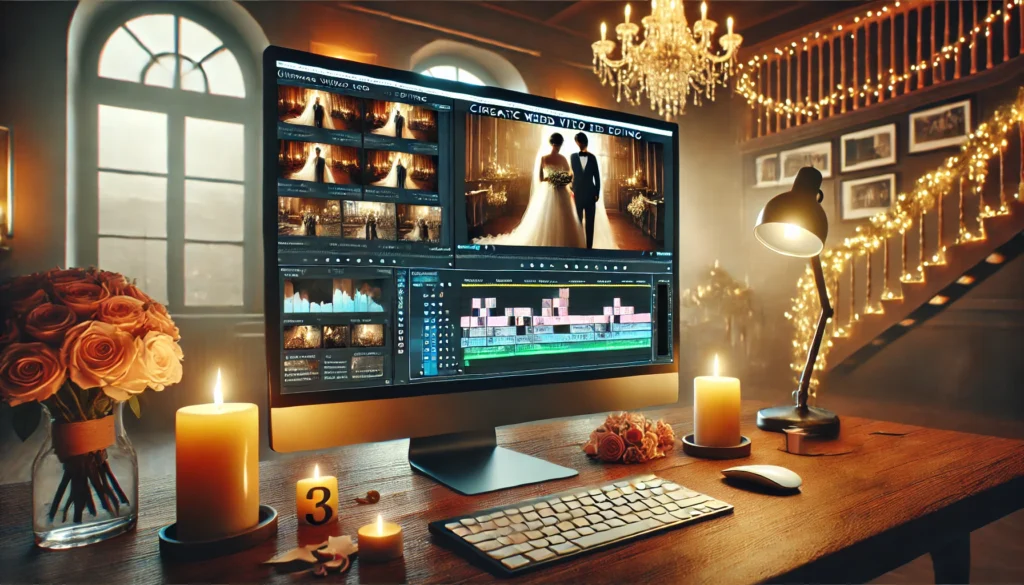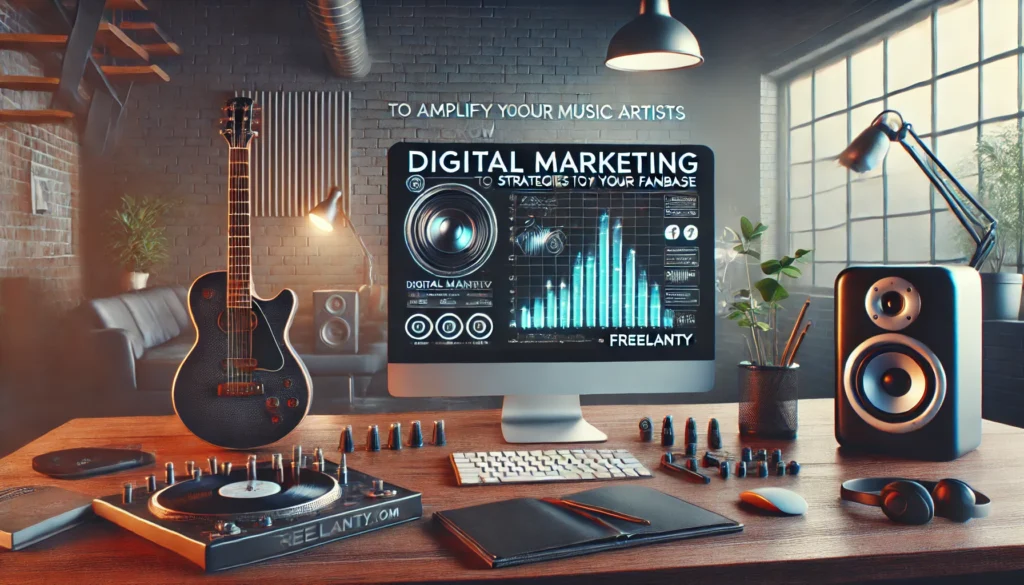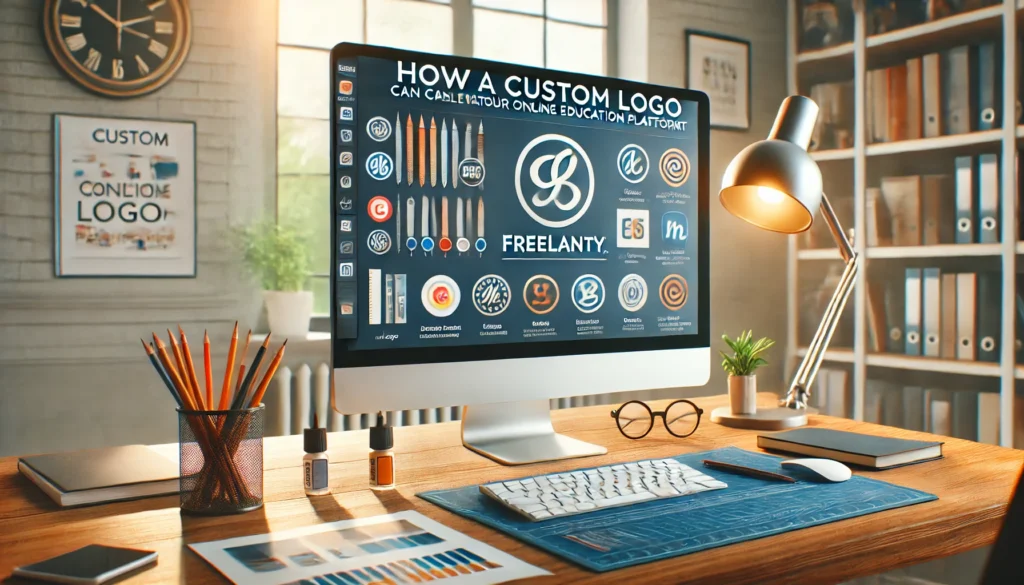







In the modern music industry, talent alone isn’t enough to ensure success. As a music artist, mastering digital marketing is essential to growing your fanbase, increasing your streams, and building a sustainable career. This comprehensive guide will walk you through the most effective digital marketing strategies for music artists, helping you amplify your sound and reach more listeners online.
Digital marketing enables music artists to reach a global audience. With the internet, geographical boundaries are no longer a limitation. Artists can promote their music to listeners worldwide, gaining fans from different cultures and countries.
Engaging with fans is vital for building a loyal following. Digital marketing provides tools to interact with your audience in real-time, whether through social media, live streaming, or email marketing. This engagement fosters a deeper connection with fans, encouraging them to support your music and attend your shows.
Digital marketing isn’t just about building a fanbase—it’s also about generating revenue. From selling merchandise online to promoting paid streams and concert tickets, digital marketing helps artists monetize their music and grow their income.
Your website is your online headquarters. It should be a hub where fans can find everything about you—your music, tour dates, merchandise, and more. Invest in a professional design, make it easy to navigate, and ensure it’s mobile-friendly. Use SEO best practices to optimize your site so that it appears in search results when fans look for you.
Your social media profiles are the frontline of your online presence. Make sure your profiles on platforms like Instagram, Facebook, Twitter, and TikTok are complete, consistent, and reflect your brand as an artist. Use high-quality images, clear bios, and links to your music and website.
Consistency is key in online branding. Your visual identity, tone of voice, and overall brand message should be cohesive across all digital platforms. This helps in creating a strong, recognizable brand that resonates with your audience.
Search engine optimization (SEO) is crucial for making your website discoverable. Use relevant keywords in your website content, meta descriptions, and headers. Include a blog section where you regularly update content related to your music, which can help improve your search rankings.
YouTube is the second largest search engine after Google, making YouTube SEO a critical part of your digital marketing strategy. Use relevant keywords in your video titles, descriptions, and tags. Create engaging thumbnails and encourage viewers to like, comment, and subscribe, which boosts your video’s visibility.
When uploading your music to platforms like Spotify or SoundCloud, use keywords in your track titles and descriptions. This helps listeners find your music when they search for specific genres, moods, or themes.
Blogging isn’t just for writers; it’s a powerful tool for musicians too. Regularly update your blog with content that your fans will find interesting, such as the stories behind your songs, updates on your career, or insights into the music industry. Blogging helps build a connection with your audience and can improve your website’s SEO.
Video is one of the most engaging forms of content. Beyond music videos, consider creating behind-the-scenes videos, vlogs about your life as an artist, or tutorials on how to play your songs. Platforms like YouTube, Instagram, and TikTok are ideal for sharing video content.
Fans love to see the process behind the music. Share behind-the-scenes content from your studio sessions, rehearsals, or tours. This type of content makes your audience feel like they’re part of your journey and deepens their connection to your music.
Pitch your music to influential music blogs and podcasts. Being featured on popular blogs or podcasts can introduce your music to new audiences and provide valuable third-party validation. Create a press kit with your bio, photos, and music links to make it easy for bloggers and podcasters to feature you.
Not all social media platforms are the same, and not all will be right for every artist. Identify where your audience spends their time and focus your efforts there. For example, Instagram and TikTok are great for visual content, while Twitter is ideal for real-time updates and fan interactions.
Social media is about more than just posting content; it’s about building a community. Engage with your followers by responding to comments, liking their posts, and sharing user-generated content. Creating a loyal fanbase on social media can lead to higher engagement and more streams of your music.
Live streaming is a powerful way to connect with your audience in real-time. Use platforms like Instagram Live, Facebook Live, or Twitch to host live Q&A sessions, virtual concerts, or studio sessions. Live streams create a sense of immediacy and exclusivity, which fans love.
Collaborations are a great way to expand your reach on social media. Partner with other artists, influencers, or brands to create content that introduces your music to new audiences. Collaborations can range from co-hosting live streams to creating joint playlists or running cross-promotions.
Email marketing remains one of the most effective ways to communicate directly with your fans. Start building your email list by offering something of value in exchange for email addresses, such as a free download of a track, exclusive content, or early access to tickets.
Keep your fans engaged by sending regular newsletters. These emails can include updates on your music, upcoming shows, behind-the-scenes stories, and exclusive content. Make sure to personalize your emails and segment your list so that your messages are relevant to each subscriber.
Use your email list to announce new music releases, upcoming tours, or special events. Email is a direct and personal way to share important news with your fans, and it often has higher engagement rates compared to social media posts.
Your profile on streaming platforms like Spotify, Apple Music, and SoundCloud is your digital storefront. Make sure it’s complete and professional, with up-to-date information, high-quality images, and links to your social media and website. Use your bio to tell your story and connect with listeners.
Playlists are a powerful tool for increasing your streams and reaching new listeners. Create your own playlists that include your songs alongside other tracks that fit your genre or mood. Also, pitch your music to playlist curators who can feature your songs on popular playlists.
Many streaming platforms offer tools for artists to engage with their listeners. For example, Spotify’s Artist Dashboard allows you to share updates, promote shows, and connect with fans directly. Use these tools to build a stronger connection with your audience and encourage them to keep streaming your music.
Paid advertising on social media platforms like Facebook, Instagram, and TikTok can help you reach a larger audience. You can target your ads based on demographics, interests, and behaviors to ensure they’re seen by potential fans. Promote new releases, upcoming shows, or your social media profiles.
Google Ads allows you to place your music at the top of search results. This can be particularly effective for promoting new releases, ticket sales, or merchandise. Use targeted keywords to reach people who are searching for music similar to yours.
When running PPC campaigns, it’s important to start with a budget that you can afford to spend. Monitor your campaigns regularly to ensure you’re getting the best return on your investment. Use analytics tools to track the success of your ads and make data-driven adjustments as needed.
Analytics are crucial for understanding how your audience interacts with your content. Track metrics such as likes, shares, comments, and streams to see what resonates with your audience. This data can help you refine your content and marketing strategies to better meet the needs of your fans.
Use analytics tools to gain insights into your audience’s demographics, locations, and listening habits. Understanding who your fans are and what they like will help you tailor your music, content, and marketing efforts to better engage them.
Digital marketing is all about experimentation and optimization. Use the data you collect to refine your strategies, focus on what’s working, and eliminate what’s not. Regularly review your analytics to stay on top of trends and adjust your approach accordingly.
Your website is the hub of your online presence, and neglecting it can hurt your digital marketing efforts. Make sure your site is up-to-date, easy to navigate, and optimized for search engines. Regularly update it with new content, tour dates, and news.
While it’s important to promote your music, over-promotion can turn off your audience. Strike a balance between promotional content and content that adds value to your fans’ lives. Share stories, behind-the-scenes content, and personal insights to keep your audience engaged.
Without tracking your performance, you’re essentially flying blind. Ignoring analytics means missing out on valuable insights that could help you improve your strategies and achieve better results.
As technology advances, virtual reality (VR) concerts are becoming more popular. These immersive experiences allow fans to attend live shows from anywhere in the world, offering a new way to connect with audiences and generate revenue.
Non-fungible tokens (NFTs) are revolutionizing the music industry by allowing artists to sell unique digital assets, such as exclusive tracks, album art, or concert tickets. NFTs offer a new way for artists to monetize their work and engage with fans.
Artificial intelligence is playing an increasingly important role in music marketing. AI can help artists analyze data, personalize marketing efforts, and even create music. Embracing AI tools can give you a competitive edge in the evolving digital landscape.
What is digital marketing for music artists?
Digital marketing for music artists involves using online platforms like social media, streaming services, email, and websites to promote music, engage with fans, and grow a fanbase.
Why is digital marketing important for music artists?
Digital marketing is crucial because it allows artists to reach a global audience, engage with fans in real-time, generate revenue, and build a sustainable music career.
How can music artists build an online presence?
Music artists can build an online presence by creating a professional website, optimizing their profiles on social media and streaming platforms, and maintaining a consistent brand across all digital channels.
What are common mistakes in digital marketing for music artists?
Common mistakes include neglecting your website, over-promoting your music, and ignoring analytics that could help improve your marketing efforts.
What are the future trends in digital marketing for music artists?
Future trends include virtual reality concerts, NFTs, and the use of AI in music marketing.
Digital marketing is an essential tool for music artists looking to build a successful career in today’s competitive industry. By understanding and implementing the strategies outlined in this guide, you can grow your fanbase, increase your streams, and connect with your audience in meaningful ways. As the digital landscape continues to evolve, staying informed about emerging trends and continuously refining your approach will be key to your long-term success.



Ready to take your project to the next level? At Freelanty, we connect you with talented freelancers who bring your vision to life. Contact us today and discover how we can help you succeed.